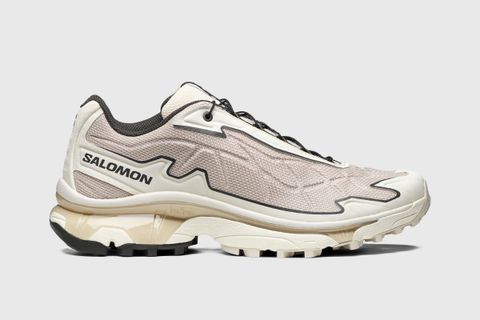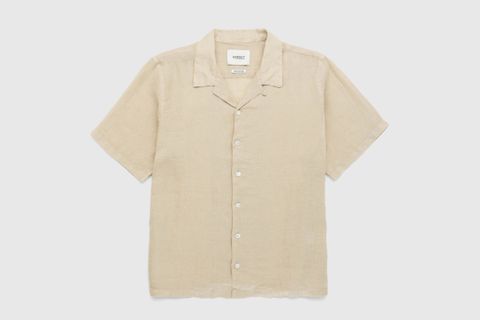Hated the Celebrity Creative Director? Fear the Celebrity Fashion Designer
Can celebrities design clothes? A generation ago, culture said no but, nowadays, it really depends who you ask. Years of frosty critical reception has melted into a new normal where it's not so strange for a pop singer or socialite to take the reigns at a triple-A luxury label and slap their name on a clothing collection.
It hardly raises an eyebrow at all, whether we're talking about Pharrell becoming Louis Vuitton's newest creative director or Beyoncé and Balmain's couture collection, never mind the fact that Beyoncé isn't a couturier or that Pharrell's only previous brushes with luxury were one-off collaborations.
In fairness, Pharrell's LV forebear, Virgil Abloh, handily demonstrated that the sole key to success in today's luxury market is vision. You don't have to be able to sketch or pattern clothes to thrive; for his part, Abloh shunned the title of "designer," knowing that such a pointless distinction would only slow him down.
Luxury labels have in-house design teams and production facilities that handle the nitty gritty, after all, so brands expect their professional ideators to provide things that aren't taught in fashion school.
Most of all, these companies want a deeper relationship with the glitterati. They don't want celebrities to wear their brands, they want celebrities to become part their brands.
I see the stage for the celebrity fashion designer set by the recent celebrity creative director boom, an expansive index of stars that reads like a list of Met Gala arrivals.
The past few years have yielded pairings like Emily Ratajkowski and beauty brand Loops; Cardi B and Playboy; Kendall Jenner and fashion e-tailer FWRD; Kate Moss and Diet Coke; a deluge of A- to Z-list folks, from Kourtney Kardashian to Molly-Mae Hague, who partner with fast fashion assembly lines like PrettyLittleThing, Boohoo, and SHEIN.
These endeavors are generally hollow affairs announced with much aplomb and little long-term intent. Typically, they're destined to yield nothing more meaningful than a sponsored Instagram post.
That's the celebrity creative director; the celebrity fashion designer gets at least a little more hands-on, effectively creating an entire clothing collection (or at least getting credit for it).
For instance, Dua Lipa developed Versace's new collection, Kim Kardashian revived archival items for her Dolce & Gabbana line, Adrien Brody was tapped to design "a series of [stand-alone] capsules" for Bally, and BLACKPINK singer Jennie collaborated with Calvin Klein on a selection of "wardrobe staples," and that's just in the past few months.
These efforts all vary in quality — Jennie's CK collection is a thoughtful, affordable pairing while Kim's D&G line is entirely inessential — but the one constant is a desire among brands to imply a relationship with celebrities that goes beyond ambassadorship.
I see Pharrell's appointment at Louis Vuitton as the peak celebrity fashion designer moment. After all, he's becoming the singular force behind every single one of the French maison's future menswear collections, beginning June 20.
Pharrell is the most prominent contemporary example of a celebrity being elevated to a leadership position within a luxury label, and he represents all of the trend's positives and negatives.
There's a fair argument to be made that Pharrell is by far the most qualified famous person to take the reigns at a fashion house.
I know — earlier I minimized Pharrell's resume to a "couple collaborations" but that's just within the luxury realm. Pharrell's overseen his streetwear line, Billionaire Boys Club, for nearly two decades and has helped boost the careers of labels like BAPE and Cactus Plant Flea Market, for instance. His eye is very well trained, suffice to say.
Pharrell has a great taste and, let's face it, we're talking about Louis Vuitton, here: between Pharrell's universal recognizability and the LV team's inherent creative skill, whatever ensues is all but guaranteed to at least look good and sell a boatload. It's a shrewd business decision.
All that being said, my biggest qualm is that Pharrell, a well-established pop culture figure so squeaky clean that his biggest-ever single was created for a Minions movie, has to be the safest possible pick to replace Virgil Abloh.
Shrewd business decisions are rarely the most exciting ones.
It was initially rumored that Louis Vuitton was considering some electrifying names, like Grace Wales Bonner and Martine Rose, for the creative director role. LV wasn't weighing household names like Pharrell but, instead, bright young designers with vision to spare.
At best, the recent move toward hiring celebrity "designers" highlights luxury's growing desire to turn a quick buck off of a famous collaborator's name rather than risk trying something (or someone) new. At worst, it leaves less-established creatives out in the cold.
If fashion houses continue platforming celebrities instead of young designers, there will never be another Virgil Abloh.
Louis Vuitton took an impressive risk by hiring Abloh in 2018. To LV's credit, it doubled down on Abloh during his tenure, giving Abloh ample room to develop his skillset and sticking with him through controversy. And Abloh, trailblazer that he was, provoked controversy on a near-quarterly basis.
The gamble paid off: LV had the distinct honor of platforming a generational talent, simultaneously positioning its menswear line as truly vital and fattening its coffers.
These infrequent celebrity-designed collections aren't solely to blame for fashion's creative bankruptcy, of course, and there are myriad reasons that luxury houses may be reluctant to test out an unproven name.
And, it's not even that the celebrity designers are doing bad work, necessarily. Beyoncé and Balmain's "Renaissance Couture" collection, for instance, was as exquisite as any other couture line.
But especially in light of several young designers recently being dropped by big brands, the sudden yen for celebrity cameos feels like a reset of the fashion industry's Overton window.
In hindsight, it makes Abloh's appointment feel especially vital but it also paints a bleak portrait of cash grabs over creativity, known names over the next generation.


